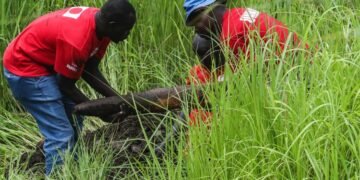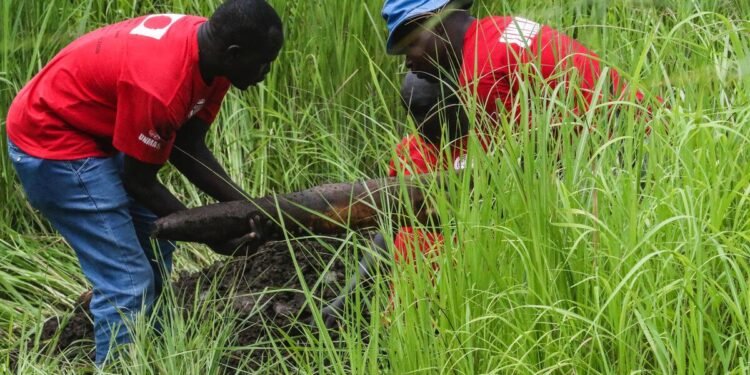The Japanese government has provided JPY 335 million (approximately USD 2.2 million) to the United Nations Mine Action Service (UNMAS) for an 18-month project to boost mine action in South Sudan.
Through the Japan International Cooperation Agency (JICA), the initiative aims to enhance the working environment for mine action agencies and accelerate progress toward a landmine-free South Sudan by 2030.
This latest funding reflects Japan’s enduring commitment to mine action in South Sudan.
Since 2011, Japan has provided over USD 16 million in support of explosive ordnance survey, clearance, emergency response, risk education, and the institutional strengthening of the National Mine Action Authority (NMAA).
The new project focuses on providing critical equipment, mobility support, and training to NMAA and deploying mobile teams for survey and risk education activities.
It will also facilitate technical exchanges under South-South cooperation, particularly between NMAA and the Cambodia Mine Action Centre (CMAC).
South Sudan remains one of the most mine-affected countries in the world, with an estimated 21 square kilometers of land still contaminated by landmines and explosive remnants of war.
These hidden dangers obstruct humanitarian aid, hinder development, and continue to kill or injure civilians, children account for over 80% of explosive ordnance casualties in the past five years alone.
Toshirō Odagiri, Japanese Ambassador to South Sudan, underscored the strategic importance of this new funding ahead of the 9th Tokyo International Conference on African Development (TICAD).
He pointed out that the initiative will increase the national mine action authority’s capacity.
“Japan is pleased to contribute to South Sudan’s vital mine action program. This project bolsters the National Mine Action Authority’s capacity, leading to safer communities and sustainable development,” Odagiri said.
He added, “As TICAD9 approaches, this initiative underscores Japan’s commitment to international cooperation and knowledge-sharing in mine action for broader peace and prosperity in the region.”
Earlier this year, Japan also contributed USD 300,000 through its Supplementary Budget to support gender equality and inclusion initiatives under the Mine Action Policy, and to further build the operational strength of the NMAA.
Maruo Shin, Chief Representative of JICA, echoed Odagiri’s sentiments, highlighting the developmental impact of mine action.
“Through this partnership, we aim to strengthen the capacity of the National Mine Action Authority and promote more effective mine action across the country. I do expect this project to contribute to creating the basis for socio-economic development and better life for the people of the Republic of South Sudan,” he stated.
The South Sudanese government views the project as instrumental in realizing its international obligations.
The country recently submitted a request to extend its Article 5 deadline under the Anti-Personnel Mine Ban Convention (APMBC) to the year 2030.
Meanwhile, Jurkuch Barach Jurkuch, Chairperson of the National Mine Action Authority, stressed that the project directly supports our goal of a South Sudan free from landmines by 2030.
“I thank the Government and people of Japan for this generous support through JICA. This project will strengthen our capacity to lead and coordinate mine action, providing our teams with the tools, training, and resources needed to survey, clear, and educate communities about explosive hazards,” he emphasized.
However, Zehrudin Sukanovic, UNMAS Chief of Mine Action in South Sudan, emphasized the operational impact of the support, highlighting how it will enable more agile, effective interventions in mine-affected areas.
“Through this JICA-UNMAS partnership, the NMAA will gain the equipment and mobility it needs, while mobile survey and EORE teams are deployed to scale surveys of antipersonnel minefields – directly supporting the Government’s APMBC Article 5 extension request,” he noted.
The project also promotes regional knowledge-sharing and technical development through peer learning with other mine action institutions, marking a key milestone in both international solidarity and local capacity-building.












